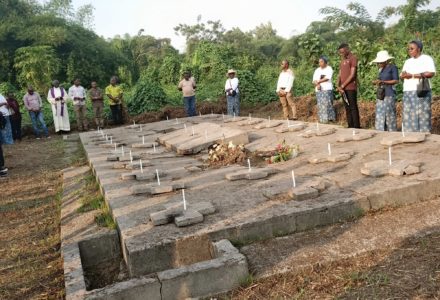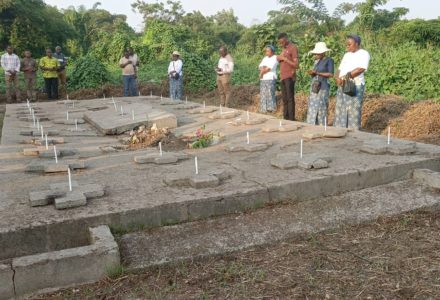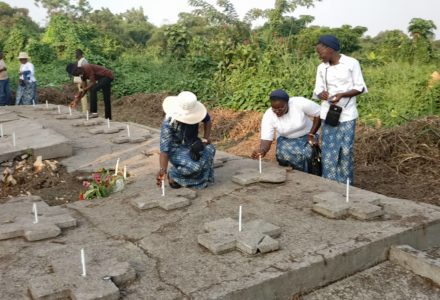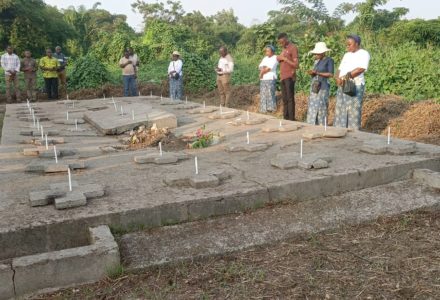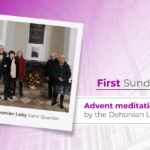A testimony of faithfulness… till the end – reflection of a Polish dehonian
In 1964, 28 Dehonians were murdered in Congo during a violent rebellion. Nuns, doctors, a diocesan priest, and members of the Protestant clergy were also murdered.
Every year, on November 26, the Dehonians reflects on the testimony of the lives of 28 missionaries murdered in 1964 in Congo. They died during a brutal rebellion which, in addition to ethnic and racial tensions, was also marked, as Fr. Stanisław Mieszczak SCJ emphasizes, by “enormous hatred for everything Christian.”
The beginning of remembrance – impulses from the universal Church
The idea of establishing a day of remembrance was born around the year 2000. As Fr. Mieszczak recalls, “In the year of the Great Jubilee, John Paul II pointed out that in the Church, in addition to saints and martyrs, we also have witnesses of faith, great Christians who sacrificed their lives in service to the Gospel and to Christ.” These words of the Pope, in turn, drew the attention of the then Superior General of the Congregation, Fr. Virginio Bressanelli, SCJ, to the Divine Word Missionaries who died as witnesses of faith and about whom little had been said in the Congregation for years. On the occasion of the final stage of the beatification process of Fr. John Mary of the Cross, Father General recalled the Dehonians murdered in Congo and then made efforts to restore their memory.
One of the priests involved in this work by Father General was Fr. Stanisław Mieszczak, who was additionally motivated by his personal relationship with Fr. Fiorino Gheza SCJ, one of the survivors of the massacre. During their years of working together in Rome, Fr. Fiorino spoke little about those events, but just before the year 2000, he spoke about them for the first time in a profound and mature way—not as a tragedy, but as a conscious sacrifice of life offered to Christ.
A sacrifice of life, not just a tragic death
Although there is a clear element of anti-colonial rebellion in the Congolese rebellion, the manner in which the missionaries were murdered leaves no doubt that their deaths were religious in nature. An example is Fr. Bernard Longo, SCJ, whom the rebels, on November 3, 1964, placed before the cross of Christ, ordered him to look at the cross, and there committed their crime. Such scenes, Fr. Mieszczak emphasizes, testify to the motives of the persecutors.
The missionaries did not simply die; they accepted their fate with full awareness of their sacrifice. This is confirmed by the words of Pope Paul VI, who, in 1965, when receiving the survivors at an audience, stated that they had been “deemed worthy to suffer for the name of Jesus.” Fr. Mieszczak also believes that this was not merely a death resulting from political turmoil: “There is no doubt that our missionaries killed in Congo are, in the full sense of the word, witnesses of our Lord through their words, deeds, and ultimately through their death—a death accepted for the sake of the Lord and in the Lord.” Therefore, Drehonians can rightly hope that they have already been established in heaven as intercessors for our order.
The birth of a new tradition
In response to these impulses of the year 2000, “witness services” were organized throughout the Church in many countries. Fr. Stanisław Mieszczak also organized such a service in Krakow. It was attended by Dehonians, novices, alumni, numerous residents of the city, and Fr. Fiorino Gheza, SCJ, one of those saved from the massacre, who had come from Rome. These events of the Holy Year also marked the beginning of the annual tradition of the Dehonian memorial days.
The Memorial Day in the Congregation is November 26, but its spiritual preparation begins on November 3, the day of the death of Fr. Longo, the first to be murdered. These three weeks are a time of prayer and reflection.
Shalom communities around the world, using materials prepared by the General Curia for spiritual readings and reflections, gather on this day for the central moment of the celebration, which is Holy Mass and adoration of the Blessed Sacrament.
However, the most important thing is the spiritual message of this time: memory cannot be merely an emotional response to history. For their confreres, the Divine Word martyrs remain a call to fidelity to their vocation, to live “not for themselves, but for Christ,” with a readiness to sacrifice and devote themselves.
As Fr. Mieszczak emphasizes, cherishing their memory is at the same time a thanksgiving for their witness and a prayer for the strengthening of faith and zeal in the service of the Kingdom of God.ds
The Pictures: Here rest our fellow priests of the Sacred Heart of Jesus, Combonians and the sisters of the Christian Doctrine and Franciscan Missionaries of Mary killed by the Simba rebels in 1964.
Taken by the SCJ in Congo, on November 25, 2025, at the Makiso Cemetery during the rosery prayer.


